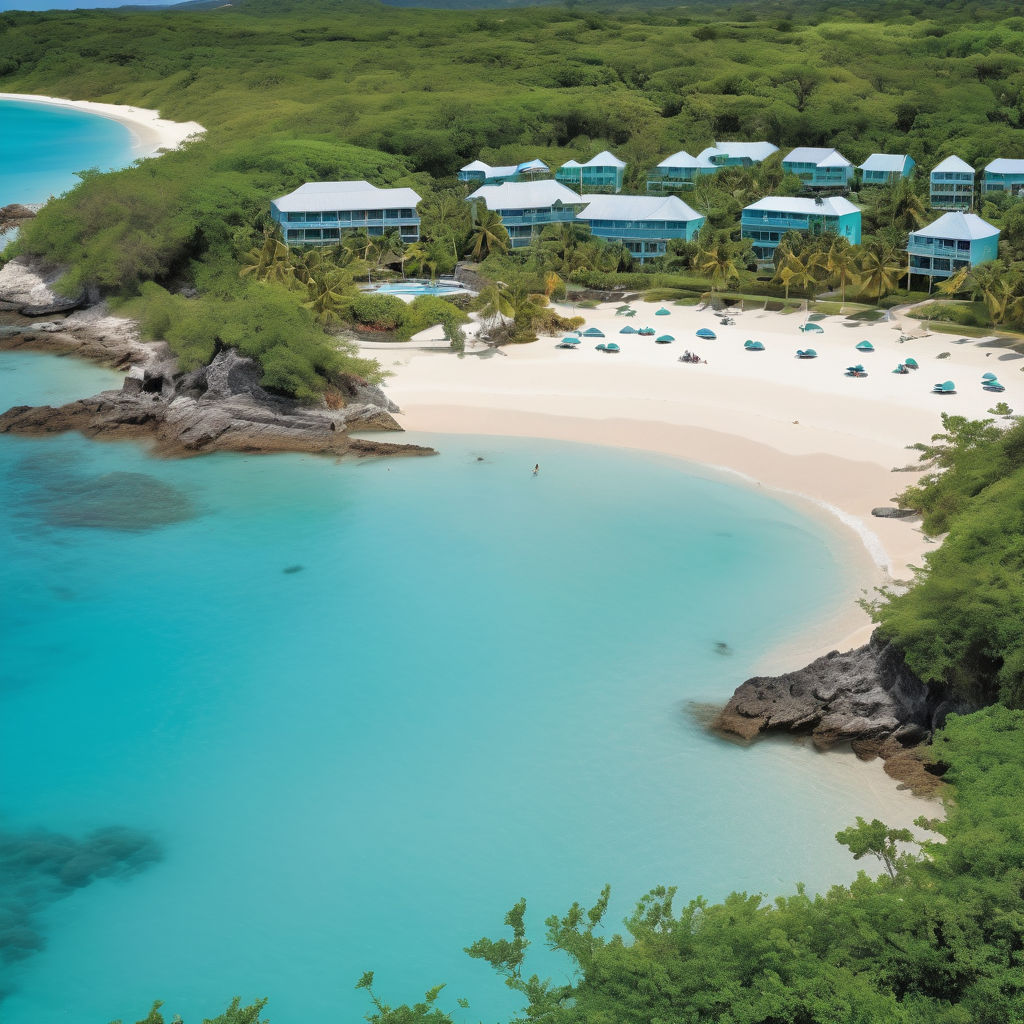Introduction to Antigua and Barbuda: A Caribbean Gem
Discover Antigua and Barbuda: Beaches, Culture, and History

Introduction to Antigua and Barbuda
Antigua and Barbuda, a twin-island nation in the Caribbean Sea, is known for its stunning beaches, vibrant culture, and rich history. Located in the Leeward Islands, Antigua and Barbuda lies to the east of Puerto Rico and the Virgin Islands and north of Guadeloupe. The capital city, St. John's, situated on Antigua, serves as the country's political, economic, and cultural hub. The islands are famous for their 365 beaches—one for each day of the year—crystal-clear waters, and a heritage deeply rooted in African, European, and indigenous influences. The cultural heritage of Antigua and Barbuda is diverse and vibrant. The islands celebrate numerous festivals and events, including Carnival, which showcases calypso music, steel bands, and elaborate parades, reflecting the nation's African heritage. The architectural remnants of British colonial rule, such as the Georgian-style buildings in St. John's, add to the cultural richness of the islands.
Cross-national and Cross-cultural Understanding
Antiguans and Barbudans are known for their warm hospitality and openness to other cultures. This welcoming attitude is partly due to the islands' reliance on tourism and their historical interactions with various nations. Cultural exchanges are a vital part of life in Antigua and Barbuda, promoting mutual understanding and appreciation. Educational programs in Antigua and Barbuda emphasize global awareness and cross-cultural understanding. Schools and universities incorporate multicultural perspectives into their curricula, fostering an environment of inclusivity and respect for diversity. The University of the West Indies, with a campus in Antigua, plays a significant role in promoting cross-cultural understanding through its diverse student body and international partnerships. International partnerships also enhance cross-cultural understanding. Antigua and Barbuda maintains strong ties with countries such as the United Kingdom, the United States, and Canada, reflected in various cultural and educational collaborations. These partnerships facilitate student and faculty exchanges, enriching the educational experience and fostering global connections.
Interactions and Social Dynamics
Typical interactions between Antiguans and Barbudans and foreigners are characterized by friendliness, respect, and a sense of community. Social behaviors in Antigua and Barbuda reflect a blend of Caribbean warmth and British-influenced politeness. Greetings are often warm and informal, with an emphasis on establishing personal connections. Communication styles in Antigua and Barbuda are generally direct and friendly. English is the official language, making it easy for tourists and expatriates to communicate. However, the local dialect, Antiguan Creole, adds a unique flavor to everyday interactions. This multilingualism facilitates communication and helps bridge cultural gaps. Cultural norms in Antigua and Barbuda emphasize respect for elders, community involvement, and a laid-back approach to life. These norms create a welcoming atmosphere for foreigners, who often find it easy to integrate into the local lifestyle.
Views on Dating and Relationships
Attitudes towards dating and relationships with foreigners in Antigua and Barbuda are generally positive. Antiguans and Barbudans are open to forming relationships with people from different cultural backgrounds, recognizing the enrichment that such diversity brings to their lives. However, cultural expectations and traditions do play a role in shaping these views. Family involvement is significant in relationships in Antigua and Barbuda, with elders often playing a crucial role in the approval process. Traditional customs emphasize respect, patience, and the gradual building of trust in relationships. While modern dating practices influenced by global trends are becoming more common among younger generations, traditional values still hold sway in many communities.
Marriage and Family
Marrying a foreigner in Antigua and Barbuda involves both legal and social considerations. Legally, the country has clear regulations governing marriage, including residency requirements and the need for proper documentation. Socially, cross-cultural marriages are generally accepted, though couples may face challenges related to cultural differences and integration. Familial acceptance is a key factor in cross-cultural marriages. Antiguan and Barbudan families can be protective, and gaining their approval is often essential for the relationship's success. However, the diverse cultural landscape of Antigua and Barbuda means that many families are already familiar with and accepting of different cultural backgrounds, which can facilitate smoother integration for foreign spouses. Trends in cross-cultural marriages reflect Antigua and Barbuda's open and inclusive society. Many Antiguans and Barbudans who travel abroad for education or work form relationships with individuals from various cultures, bringing back diverse customs and traditions that enrich the local community.